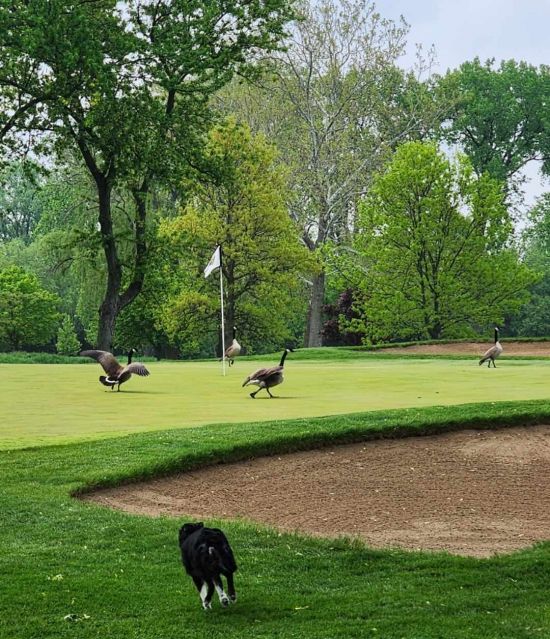Welcome to
North Shore Goose Control
40+ years of goose expertise
Opting to work with North Shore Goose Control means choosing an enterprise committed to adaptability, aiming to deliver unparalleled service for every managed property. We employ only humane and legal methods, sanctioned by both state and federal governments, ensuring our practices are not only effective but also ethical.
In the northeast section of Illinois, particularly the counties surrounding Chicago, it's estimated there are about 100,000 yearround resident Canada geese. This number likely exceeds the population in the rest of the state. The abundance of ponds and grassy areas in these regions makes them ideal habitats for both local and migrating geese.
The Illinois Department of Natural Resources conducted a spring survey in 2013, which estimated the population of Canada geese in Illinois at approximately 114,800. This number represented a 7% increase from the 2012 estimate and was 6% higher than the average of the previous ten years. Additionally, the survey estimated nearly 1.6 million Canada geese nesting across the Mississippi Flyway, nearing a record high
Under the Migratory Bird Treaty Act and the Illinois Wildlife Code, Canada geese receive federal and state protection. In urban settings, removing these geese requires specific permits issued by the Department of Natural Resources (DNR).
Bread is Killing Waterfowl
It's frequently observed in suburban parks and ponds that local paterons feed bread to ducks and geese, not realizing the negative impact. Such feeding can cause Angel Wing Syndrome, rendering the birds unable to migrate and potentially leading to their demise in winter. Bread also produces poor water quailty and bacteria within ponds and lakes. To promote waterfowl health, it's essential to refrain from feeding them bread, encouraging their natural foraging behaviors. These birds are capable of sourcing their own food and migrating as necessary. We can prevent these issues by not feeding them and allowing them to remain wild.

